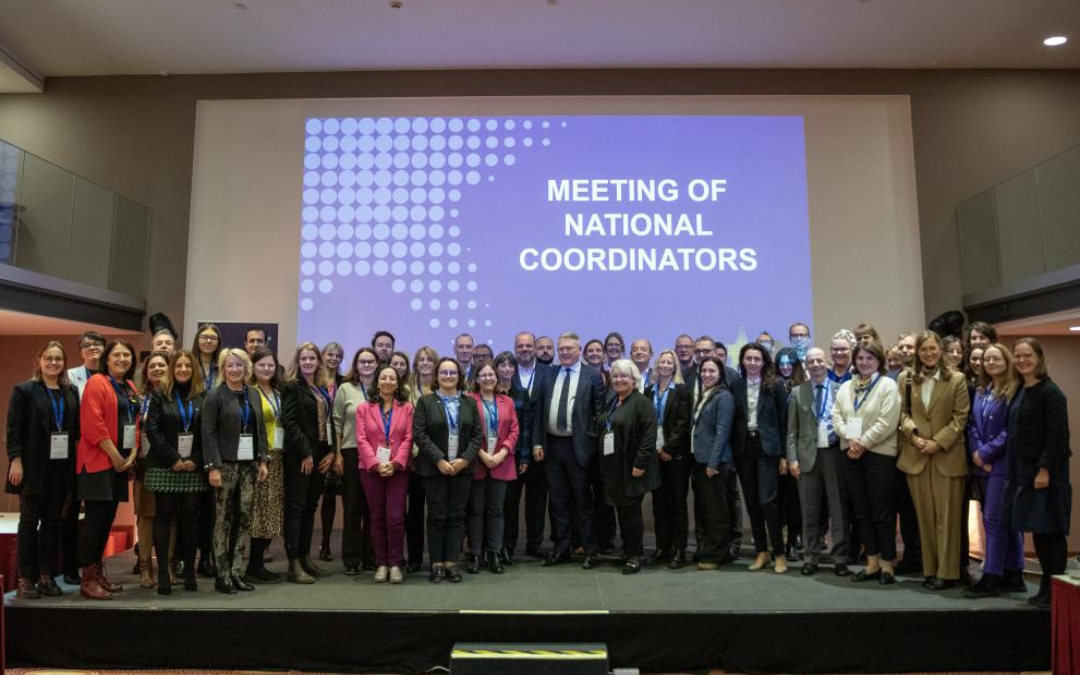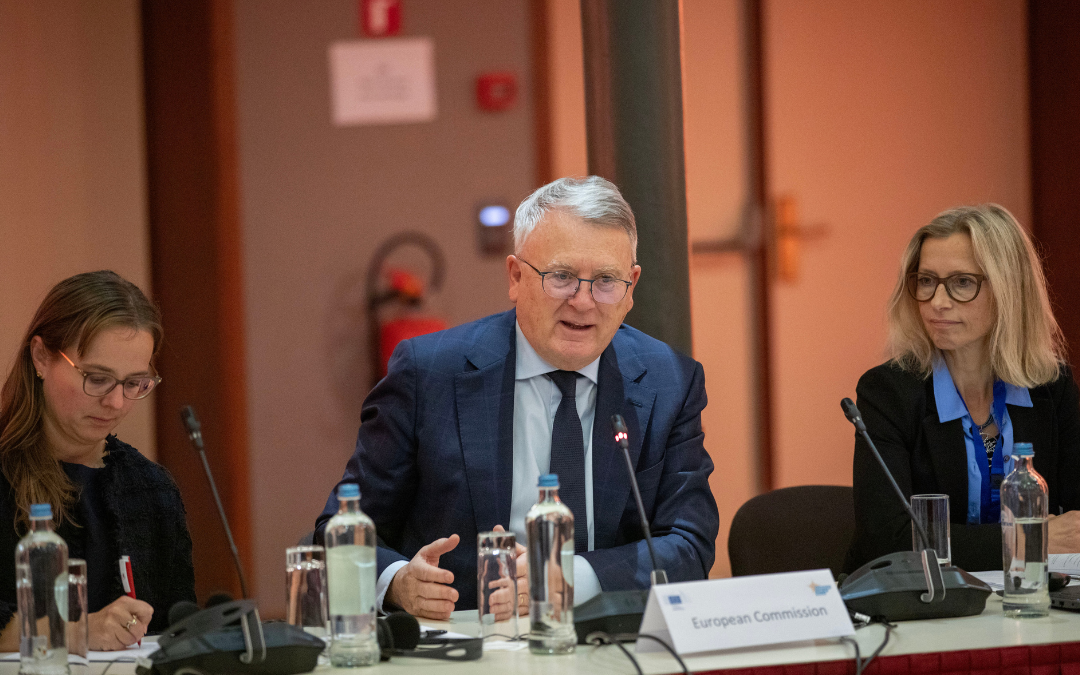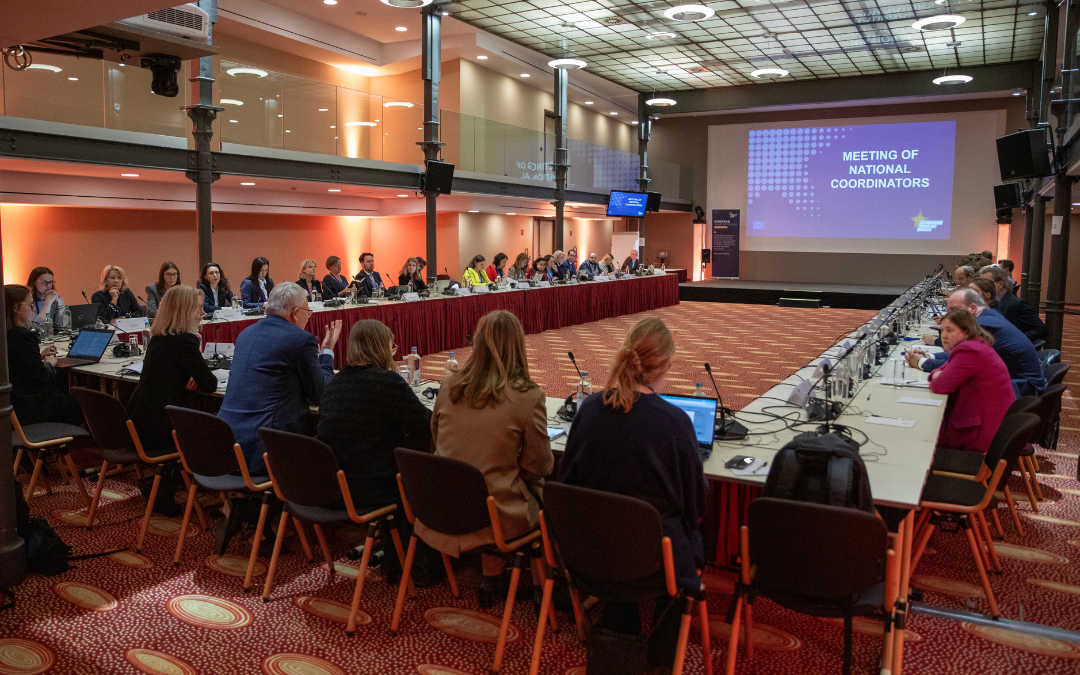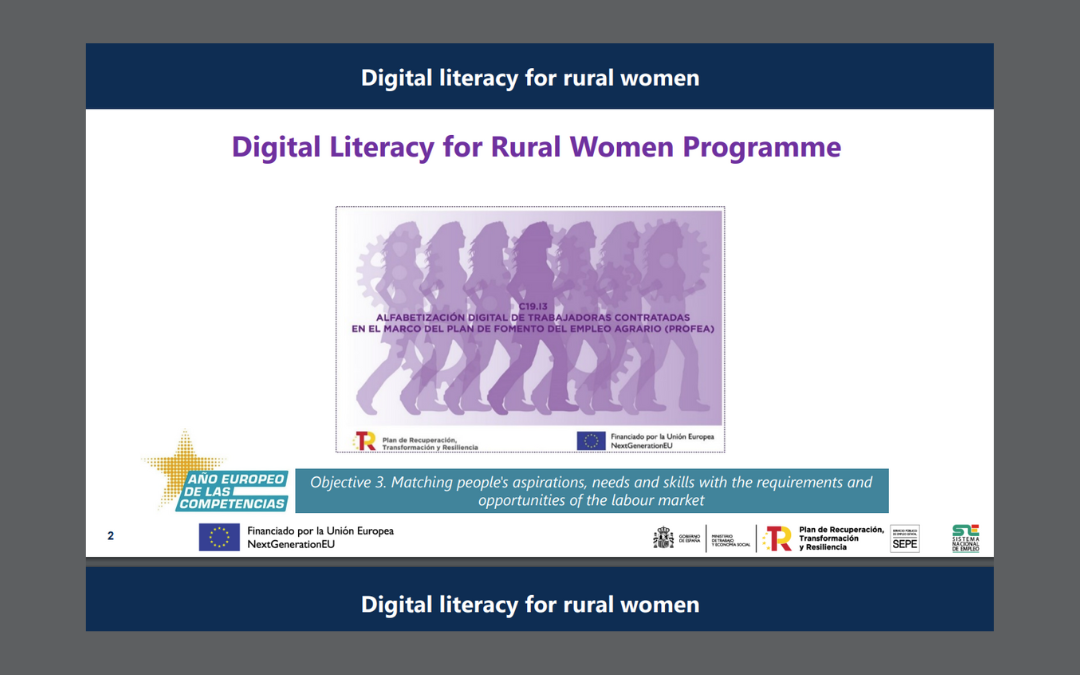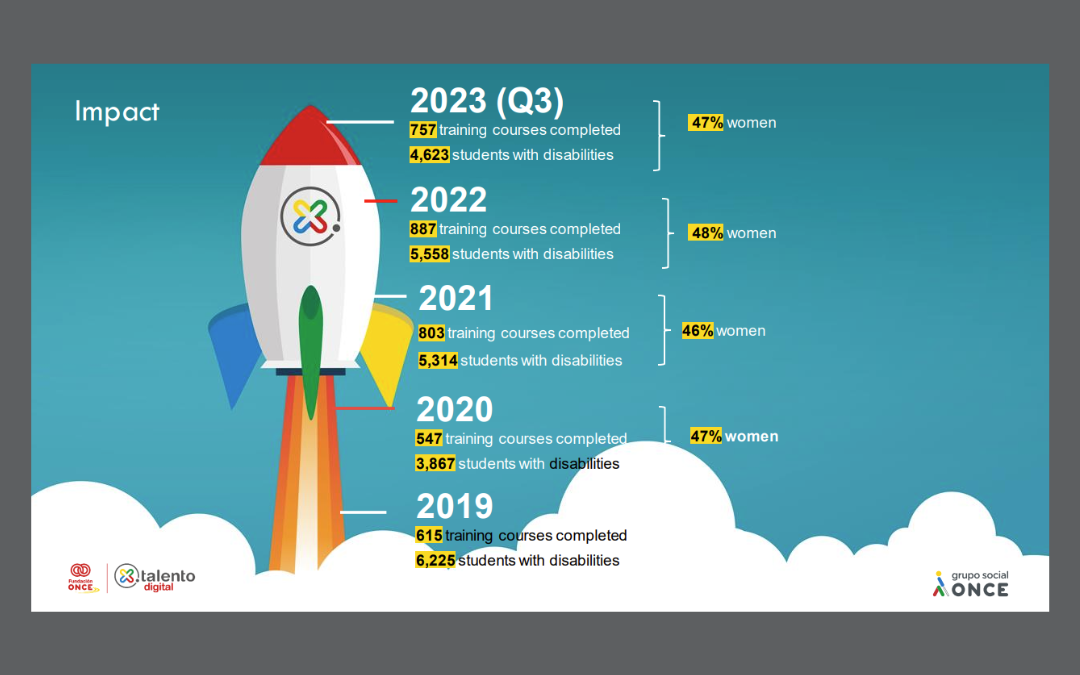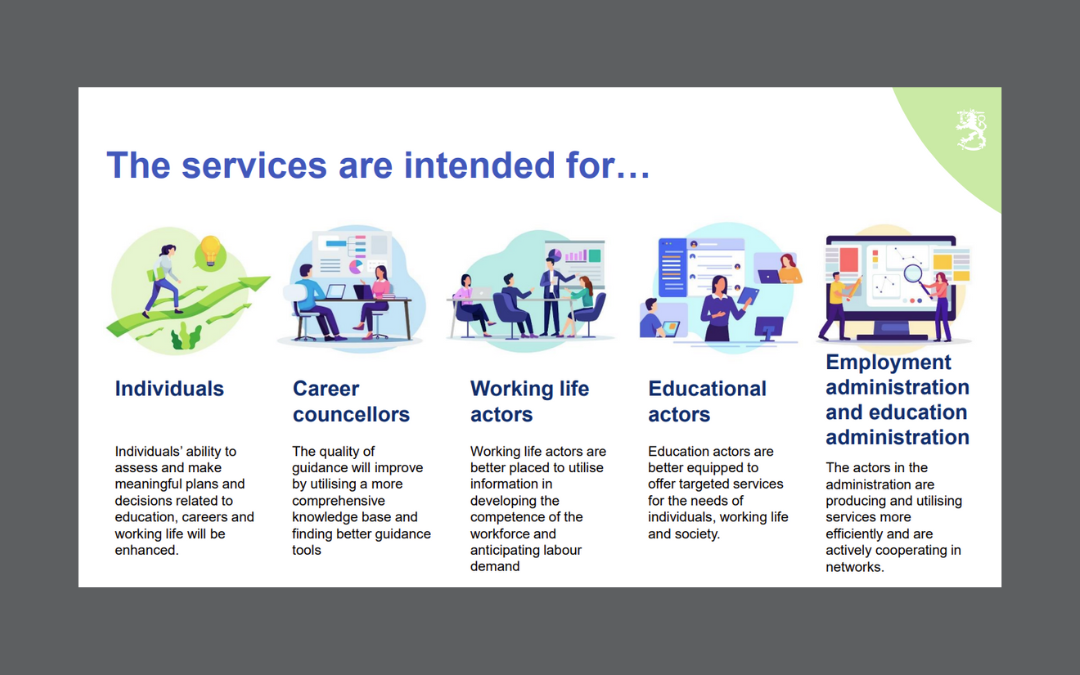DG EMPL at the EC gathered us this time to exchange some examples of good EYS practices. Initially, the representative of the working group for EYS at DG EMPL presented an analysis of our responses to their survey which covered three aspects: governance, communication and monitoring of EYS activities. It appeared that the majority of national coordinators come from ministries responsible for labour, a small quarter from those for education and only in seven cases do we represent other types of institutions. The described composition of our network undoubtedly affects all three aspects mentioned above and the content highlighted in EYS at the national level.
In the plenary session, we listened to examples from Austria, Ireland, Malta and Spain
The speakers focused on the governance aspect, addressing how to involve all parts of the government and other stakeholders in EYS. The most notable approach worth emulating, in my opinion, comes from Malta and is led by the National Skills Council. Although established within the Ministry for Education, this 8-member group acts as a connecting link between departments in formulating and implementing policies to ensure a suitably skilled workforce. This is certainly not just a one-year effort but a thoughtful, partnership-oriented approach to adapt flexibly to changes in the economy and society. I’m writing about their excellent September EYS event in a separate article.
Later discussions also highlighted that EYS typically does not introduce new measures but rather highlights existing efforts in policy, the profession and practice. In doing so, it adds value by enhancing their visibility, even to a broader audience. Throughout this part of the programme, there was repeated emphasis on the need for continuity of the EYS.
In the working groups, we addressed four themes
I chose to delve into the issues of upskilling and reskilling, as well as forecasting labour market needs and matching them with existing skills. Two examples came from Spain. The first, led by their employment agency, focuses on developing digital literacy among women in rural areas. ONCE Foundation presented an intriguing educational programme for acquiring digital skills aimed at individuals with disabilities. In the first case, during the discussion, I highlighted the interdependence and mutual enhancement of skills, as also evidenced in our EAAL forums. In the second case, I surprised them with a question: could their participants become teachers or at least mentors to their peers upon completing the programme, as they are most familiar with the barriers and potentials of this target group?
In the second group, representatives from Finland and Austria discussed digitised methods of monitoring and matching labour market needs and skills supply. In both cases, a platform is used – the Finnish Digital service bundle for continuous learning and the emerging Austrian one, which will enhance their Career Compass. It became evident that similar information systems exist in Member States. However, our shared concern lies in ensuring the input of high-quality data, integrating with other existing systems, utilising taxonomies and the like. In this group, I noticed the absence of addressing the issue of long-term forecasting of necessary skills based on future professions.
In two parallel groups, discussions focused on:
- Measures for successful transitions between jobs – especially for older and inadequately skilled workers.
- Challenges faced by small and medium-sized enterprises in upskilling and reskilling initiatives.
Upskilling Pathways – have new opportunities for adults been effectively established and utilised?
The issue of upskilling and reskilling remains as relevant, if not more so, six and a half years after the Council Recommendation on Upskilling Pathways: New Opportunities for Adults was published. Therefore, alongside the topics mentioned above, I would like to draw attention to the publication of:
- The Commission’s evaluation report to the Council and
- The Commission staff working documenton the implementation of this Recommendation.
The EC released both documents on 17 July this year as part of their activities within EYS. From the available resources, it has been concluded that the effects of the Recommendation are moderate. However, the potential is undoubtedly immense (author’s note).
Zvonka Pangerc Pahernik, MSc (zvonka.pangerc@acs.si), SIAE

